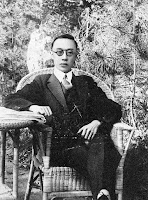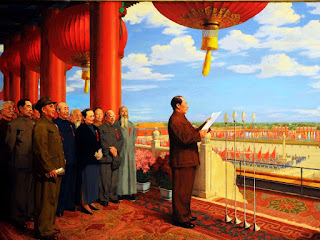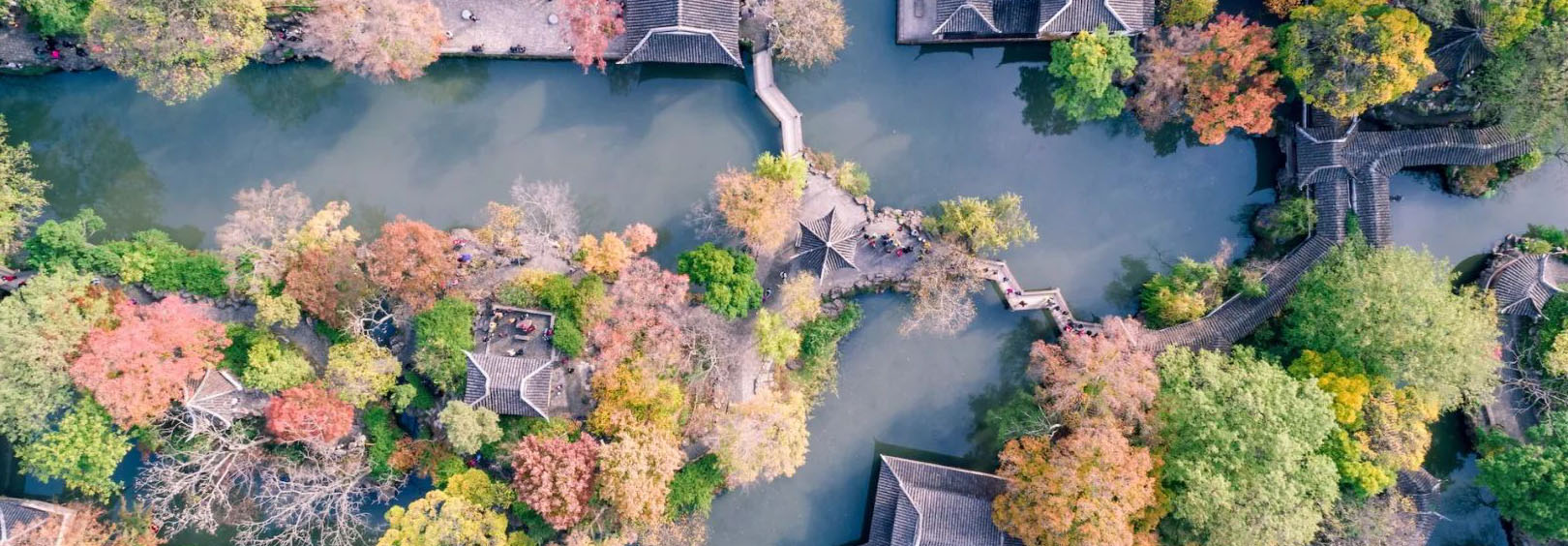Puyi - The Last Emperor in China
Puyi is the last emperor in the Qing dynasty and also the last emperor in Chinese history. He ascended the throne at age three and was forced to abdicate in 1912. Along with his abdication was the end of the Qing dynasty and China’s imperial period. After the September 18th Incident in 1931, Puyi became the puppet emperor for Manchukuo under Japanese control until 1945. He was kept as a captive by the Soviet army for s few years before being taken over by the Chinese government in 1950. Since then, Puyi was nothing different from an ordinary Chinese person. On Oct.17, 1967, Puyi died in Beijing and was buried in Hualong royal cemetery.
Puyi’s Resume
 |
| Puyi |
Full Name: Aisin Gioro Puyi
Occupation: emperor, prisoner, ordinary person
Birthday: Feb.7th, 1906
Death Date: Oct.17, 1967
Major Accomplishments: imperial restoration
Burial Ground: Hualong Royal Cemetery of the Western Qing Tombs
Early Years of Being An Emperor
Puyi was born on Feb.7, 1906, at the residence of Prince Chun. His mother was the daughter of Rong Lu, a trusted subordinate of Dowager Cixi’s. In 1908, Emperor Guangxu was seriously ill. Dowager Cixi ordered Puyi to ascend the throne. On Dec.2, 1908, barely 3-year-old Puyi had his enthronement and became Emperor Xuantong. Empress Longyu (Emperor Guangxu’s wife) and Zaifeng (Puyi’s father) acted as regents.
 |
| Xuantong Emperor |
Puyi may be the emperor; the actual power was at the hands of his father, uncles, and other powerful ministers.
At the time, China was going through a transformation. The old imperial society was suspected and challenged by new thinking and foreign cultures. Qing court sought constitutional monarchy and partial reform to resolve social contradictions, which turned out to be infeasible.
On Oct.10, 1911, Wuchang Uprising broke out. To suppress the revolt, the Qing court was forced to make Yuan Shikai the prime minister to perform the task. Yuan Shikai fought back, and the Wuchang revolutionary army led by Sun Yat-sen was nearly put down. Many provinces in south China proclaimed independence. Finally, Sun Yatsen and Yuan Shikai reached an agreement that Sun Yatsen would render his presidency to Yuan if he could make Puyi abdicate. They also agreed to let Puyi stay at the Forbidden City and use Emperor title. The government of the Republic of China would also grant 4 million silvers to Puyi annually as an expenditure. On Feb.12, 1912, Dowager Longyu issued the Abdication Edict, indicating the official ending of the Qing dynasty. Puyi still stayed at the imperial palace and enjoyed four million Yuan as a subsidy. He was no longer an emperor.
Life in the Palace
At age six, Puyi began to receive education, including the classics, poems, and prose. Unfortunately, he never learned science, geology, and history. His life in the palace was peaceful. All the old ministries remained. In November 1914, the State’s Council of the Republic of China requested that Puyi’s court be regulated. Since then, Puyi had lost most of his
 |
| Puyi and Wenxiu |
In 1917, an old Qing minister named Zhang Xun led 4,000 men to Beijing and launched a mutiny. The 12-year-old Puyi was made the emperor again. However, this time, Puyi only stayed on the throne for 11 days before being pushed off again. During his short imperial restoration, a small bomb was dropped on the Forbidden City, causing some damage to the Yanxi Palace. It was considered the first airstrike in East Asia.
Beijing Coup
In 1919 a British military officer named Reginald Johnston came to the imperial court and became Puyi’s teacher. He taught Puyi subjects like English, math, world history, and geology. They had a great relationship. Since then, Puyi entered a new world. He cut his hair, wore suits, and try many new things. In 1922, Puyi married two women, Wanrong and Wenxiu. His life was never more cozy and enjoyable.
In 1924, a warlord named Feng Yuxiang from northwest China ignored Puyi’s privileges and forced Puyi to leave the palace. Since then, Puyi moved to Zaifeng’s house first and then to the Japanese legation. Later, he was escorted by the Japanese to Tianjin.
Puppet Emperor of Manchukuo
In 1931, under the help of a Japanese commander, Puyi made to Fengtian. In the next year, Puyi was made the leader
 |
| Manchukuo Map |
On Aug.8, 1945, the Soviet Union declared war against Japan and uprooted Manchukuo. Seven days later, Japan surrendered. Puyi issued the Abdication Edict again and planned to escape to Japan. He was captured by the Red Army of the Soviet Union and stayed in the Soviet Union as a war prisoner for five years, during which he gave several testimonies to Japan’s war crime.
Reform Through Labor
In 1950, Puyi and other war criminals of Manchukuo were transferred back to Lvshun War Criminal Management Institute. Puyi spent three years here to reform himself through labor. Later, he traveled to Northeast China, finished his biography, and work in prison.
In 1959, the Chinese government decided to grant special amnesty to prisoners. Puyi was one of the first batch prisoners that had been pardoned. Since then, he began to live like an ordinary person.
In 1960, Puyi was assigned to work at the Beijing Botanical Garden. Two years later, he married a nurse named Li Shuxian. Then, he was dispatched to be a researcher and became a member of the national committee of CPPCC. During the cultural revolution, Puyi was one of the protection targets under prime minister Zhou Enlai’s order. Therefore, he was spared cultural persecution.
In 1967, Puyi had diagnosed with uremia. He was treated in several hospitals, and nothing seemed to be working. On Oct.17, 1967, Puyi passed away, and his ash was buried in Hualong royal cemetery.
Puyi’s Wives
Wanrong (1906 - 1946) was Puyi’s official wife. Her father was a minister in the Qing court. In 922, she married Puyi and
 |
| Puyi and Wanrong |
Wenxiu (1909 - 1953) was Puyi’s first concubine. She married Puyi in the same year of Wanrong. In 1924, Wenxiu was expelled from the court and attempted to commit suicide. Later, she grew separated from Puyi for the harem fight and Puyi’s plan to restore imperialism in China. In 1931, Wenxiu escaped from Tianjin and announced her divorce from Puyi. Later, she lived a difficult life during the Anti-Japanese war. In 1947, Wenxiu married a military officer named Liu Zhendong. In 1953, she died at age 44.
Tan Yuling (1920 - 1942) was Puyi’s third wife. She married Puyi in 1937 and was quickly ill. It’s said that she was murdered by the Japanese as she wasn’t the wife the Japanese favored.
Li Yuqin (1928 - 2001) was picked by the Japanese to be Puyi’s wife in 1943. She divorced Puyi in 1957 and was persecuted for her old identity during the cultural revolution. In 2001, she died of liver cirrhosis.
Li Shuxian (1925 - 1997) was a nurse in a Beijing hospital. She married Puyi in 1962. They had five years of good marital times.
 |
| The First Half of My Life |
Major Work: The First Half of My Life
Puyi’s book The First Half of My Life is a work of repentance. It recorded his life journey from ascending the throne to being transformed in prison, providing a different perspective to observe the changes in China.



Comments
Post a Comment